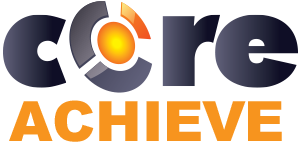Maximizing Small Business Potential with Training Technology
January, 12 2024
Other posts:
Enhancing Team Dynamics for Effective Group Decision-Making with LMS Integration
Organizations increasingly rely on collaborative efforts to solve complex problems, innovate, and adapt to change, but how do we ensure that collaboration is happening.
Unlocking Employee Potential: The Transformative Benefits of an Interactive Learning Management System (LMS)
Interactive training allows for unlocking employee potential, but how is it done?
Building a Robust Sales Pipeline with Training
Every organization wants a streamlined sales pipeline, but building one requires a series of interlocking activities with one of the most important being training.
Strategies for Adapting In-Person Training to Online Platforms
Online training is one of the most flexible ways of delivering training across organizations, but how do you even begin to adapt in-person training into online?
Giving Back to Employees: Strategies for Impactful, Organizational Gifts
Gifts don't have to be purely material, organizations can give back to their people by implementing some structural changes.
Training technologies can push small businesses ahead of their competitors, but what are the factors that go into choosing the right technology?
In the dynamic landscape of small businesses, where every resource counts, finding efficient solutions is paramount. When it comes to employee training and development, a Learning Management System (LMS) tailored for small businesses can be groundbreaking. Let’s explore the key considerations and advantages of implementing an LMS in the context of small business operations.
Understanding the Unique Needs of Small Businesses
Small businesses face distinct challenges, from limited budgets to a need for scalable solutions. Recognizing these factors is the first step in selecting an LMS that aligns with the specific requirements of your organization.
Cost-Effectiveness
Small businesses often operate on tight budgets. Traditional training methods can be costly and inefficient with all the resources involved in it. An LMS offers a cost-effective alternative, providing a centralized platform for training without the need for physical resources.
Scalability
A small business may not stay small forever. Choosing an LMS that scales with your business ensures a seamless transition as your workforce grows, preventing the need for disruptive changes in the future.
User-Friendly Interface
In a small business environment, where employees often juggle multiple roles, a user-friendly interface is crucial. Look for an LMS that requires minimal training, allowing your team to focus on training rather than navigating complex systems.
Tailoring LMS Features to Your Needs
Customization for Specific Needs
Every small business is unique. Your LMS should reflect that. Seek a system that allows customization to meet the specific training goals and objectives of your organization.
Integration with Existing Systems
Small businesses often rely on various tools for day-to-day operations. An LMS that integrates seamlessly with your existing systems, such as HR or project management tools, streamlines processes and enhances overall efficiency.
Mobile Accessibility
Flexibility is key in small businesses, where employees may be on the move. Opt for an LMS that offers mobile accessibility, enabling training anywhere and fostering a flexible work environment.
Ensuring Compliance and Security
Compliance Features
Depending on your industry, compliance training may be a necessity. Choose an LMS equipped with features that facilitate compliance training, ensuring your business stays on the right side of regulations.
Security Measures
Small businesses are not immune to cybersecurity threats. Prioritize an LMS that implements robust security measures, safeguarding sensitive training data and maintaining the integrity of your operations.
Maximizing ROI and Streamlining Training
Measuring ROI
In the world of small businesses, every investment must deliver value. An LMS equipped with analytics and reporting tools allows you to measure the return on investment, demonstrating the impact of training initiatives.
Community and Peer Learning
Small teams thrive on collaboration. Look for an LMS that supports community and peer learning, fostering a collaborative environment that enhances the overall learning experience.
Final Thoughts
Implementing an LMS in a small business setting is not just adopting new technologies; it allows employees to unlock potential. By carefully considering the unique needs of your business and choosing an LMS that aligns with those needs, you're not just investing in training; you're investing in the growth and success of your entire organization.
Get started with CoreAchieve today for free.
Photo by Adam Winger on Unsplash

Leave comment: